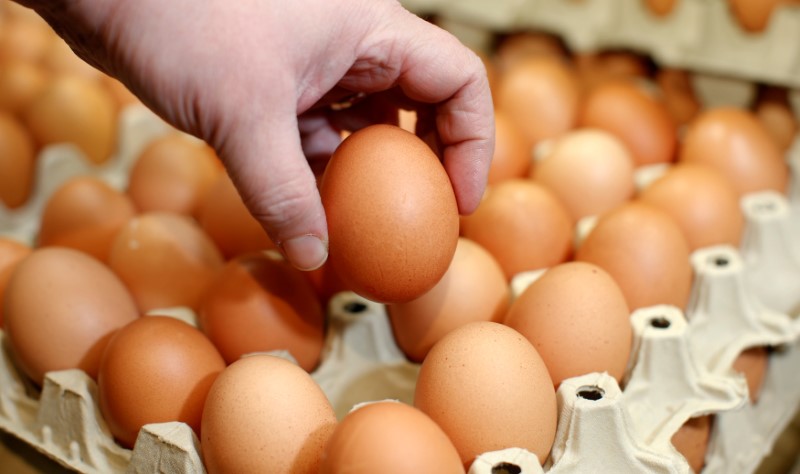By Joseph Nasr
BERLIN (Reuters) - German and Spanish consumer prices rose less than expected in September, tilting a finely balanced monetary policy debate at the European Central Bank toward a more measured exit from its stimulus program.
Prices in Europe's largest economy rose 1.8 percent year on year, EU-harmonized data showed on Thursday - less than the 1.9 percent rise forecast in a Reuters poll. In Spain, equivalent prices rose 1.9 percent, below the expected 2 percent.
Hawks at the ECB want the central bank, whose main policy target is an inflation rate of just under 2 percent, to scale back its asset purchases relatively quickly while doves favor a gradual withdrawal.
It is expected to decide this autumn - most probably in October - whether to curb its stimulus from next year.
"The figures allow the ECB to exit its expansionary monetary policy slowly," said Marco Bargel of Commerzbank (DE:CBKG). "The inflation we are currently seeing in Germany and in the euro zone lends no reason to wait longer to wind down the bond purchases but at the same time there is no reason to rush."
German inflation has consistently run above the euro zone average. Preliminary data for the whole bloc is due on Friday and should show a rise to 1.6 percent from 1.5 percent in August, according to a Reuters poll.
MORE TO SPEND
The German economy grew by 0.7 percent on the quarter between January and March and by 0.6 percent in the second quarter, driven by household and state spending as consumers and authorities reap the benefits of record-low borrowing costs and a low unemployment rate.
Despite a robust growth outlook, leading economic institutes expect German inflation to remain below 2 percent in the next two years.
A breakdown of Thursday's data showed non-harmonized food and energy inflation picked up from August while services and rents were unchanged.
Economists say the weaker-than-expected German figures back expectations that relatively subdued price pressures will support a consumption-led upswing.
Sal Oppenheim economist Ulrike Kastens said she expected German wages to grow by up to 3 percent on average next year while she saw inflation remaining unchanged at roughly 1.7 percent.
"This means that workers still have more money in their pockets to spend," Kastens said. "Private consumption will remain a growth driver also next year."

Still, a consumer sentiment survey showed on Thursday that the cheerful mood among German shoppers weakened heading into October. The Nuremberg-based GfK institute said its index edged down to 10.8 points from 10.9 in the previous month, and linked the fall to rising prices.